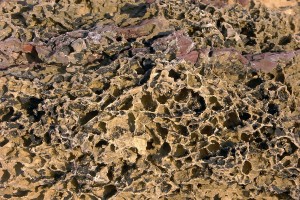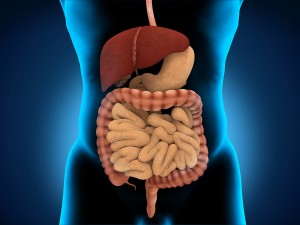Natural Ways to Improve Your Immunity
Last time we talked about a long list of Ayurvedic lifestyles that will enhance immunity Here’s a shortlist of trace metals that are important in immunity which is the only way we individually will improve our immunologic response when infected by a viral load such as COVID 19
Nasal breathing Many of us breathe through the mouth The simple transition to nasal breathing can enhance nitric oxide which improves immunologic response among other things
Neti use can improve immunity directly and indirectly Because it clears the nasopharynx it directly improves nitric acid production Indirectly it reduces mucous that can trap bacteria/viral particles that lead to colonization and the carrier or infected state Read the part on neti on my last blog that will tell you how to use the pot appropriately so you'll maximize the benefits of neti Here's the best pot that I have found (goo.gl/XDSC1Q) due to its size and stainless steel quality You can get copper ones but they will oxidize over time
Drinking from a copper container(https://amzn.to/2whz7C2) the capped container is important as copper will be oxidized which will make the drinking water acidic over time With the cap the oxidation doesn’t take place Importantly need to soap and water the inside surface of the container every day Here’s a scrub brush… https://amzn.to/2vC4bM
Turns out that copper is highly reactive to foreign invaders such as bacteria and viral particles See this article bit.ly/33zsYNy Copper is also important in our production of white blood cells
Zinc aids in the production of white blood cells Here’s a unique product that is safe and effective https://bit.ly/3bpkxHB
Read More
Ayurvedic Principles to Help Protect From Viral Infections
It's now surprising that as we have been discussing the microbiome and how healing it can lead to healing chronic disease and that treating the microbiome can be instrumental in protecting yourself and loved ones during this COVID 19 pandemic now going on in the US
Here's a video link for more information
https://www.youtube.com/watch?v=U_qF5pTA4_A&t=15s
And below is the supporting information referred to in the video
THE RELEVANCE OF AGNI AND GUT MICROBIOME TO HEALTH
From an Ayurvedic perspective our digestive strength and function (agni) is central to the disease process. If one has a balanced digestion and agni, then physiologic dis-ease cannot occur. Our choices around diet, lifestyle, and the medicines/supplements we use can disturb our agni. The net result of this agni disturbance is a disruption of our body’s natural functions (vata, pitta and kapha) and the production of toxic sludge (ama) which can clog our system and eventually create inflammation in our tissues.
So, the essence of treating physiologic dis-ease is to restore balance to a disturbed agni. This takes time because there has to be a gradual elimination of excess dosha and accumulated ama and inflammation.
An aspect of agni in the physiology is represented by the gut microbiome (gut bacterial flora). Although agni has a pervasive physiologic impact throughout the entire mindbody, a healthy microbiome in the gut provides immense support to the mindbody’s health. Using Probiotics, Prebiotics in your diet is a highly effective way to reestablish agni and a healthy gut.
PROBIOTICS
One of the ways to restore gut agni is the use of probiotics or bacterial supplementation to crowd out the “bad guys” that are producing the symptoms of IBS (irritable bowel syndrome), SIBO (small intestinal bacterial overgrowth), or IBD (inflammatory bowel disease). These gut disturbances are examples of disturbed agni. In general they produce bloating and abdominal pain from the functional bowel obstruction produced energetically by Pitta(Fire/Water) and/or Kapha(Water/Earth) qualities in the small bowel and colon leading to the build-up of Vata(Space/Air).
Since the microbiome is an aspect of agni supporting the bacterial flora is one of the primary goals of agni restoration. The important aspect of a good probiotic is that it ensures survival of the probiotic as it passes through the gastric acidic pH. Many probiotics do not ensure survival
Homemade yogurt (see recipe) is an excellent drink to use to improve digestion. It not only provides microbiome probiotic support but lessens the likelihood that there will be kill off of probiotic as it passes through the gastric pH environment. See Homemade Yogurt as well as other recipes below
Recommended Microbiome Support
Here are some excellent products that I recommend to improve the quality of your gut bacteria. I call this the microbiome trifecta.
Trenev Trio from protren.com
Call 888.381.1887 and use DEANW002 on order and get 20% discount on order
This is a powerful probiotic for restoring and maintaining intestinal microbial balance.
MegaSporeBiotic from microbiomelabs.com
Note: Use this link to create an account: acct https://microbiomelabs.com/register/?ref=balance00<br>
This reconditions the gut by promoting microbial diversity and maintaining key health-promoting, commensal gut bacteria.
Turkey Tail from fungi.com
On the home page of FungiPerfecti, click the opt-in and when possible select Join Our Tribe. This will get you a 10% discount on product using coupon code JOINTHECOMMUNITY10 when ordering.
Turkey tail supports natural immunity and natural microbiome. Save 50% by getting the powder instead of capsules
Add 1 tsp of powder/day in lassi when taking the above probiotics
PREBIOTICS
To ensure a healthy microbiome of gut bacteria in the small and large intestines (and improve digestive agni), it’s important to feed it properly. This nutritional support is done through prebiotics. Prebiotics also have a secondary value in that they bind toxins in the gut and carry them out in the stool. This particular characteristic makes them extremely value in detoxification therapies.
Common examples of prebiotics are tapioca and taro root (recipes below). If you have problems finding the tapioca or taro root in your markets, amazon links are provided that are cost effective.
Tapioca pudding
Tapioca 4 tablespoons (https://amzn.to/365M7Xd)
Whole milk See instructions for amount
Sucanat 2 tablespoons or based on taste (raw cane sugar)
One egg
2 cup measuring container & 2 quart skillet
Preparation
In the measuring container put the egg, sucanat, and granulated tapioca.
Whisk to mix and add milk to the top of the container and mix
Place in the skillet and bring to a rolling boil (see boiling while stirring) and let cool. Pour into storage container and refrigerate. Eat warmed or cold
Taro root
Be sure you get the small sized taro (6-8” in largest circumference are best or <12” in greatest circumference) because they are not fibrous. The larger roots do not have the toxin binding capability due to the lack of the slimy character. You can use this preparation soups as thickeners or as a substitute for mashed potatoes.
Taro Root 6-9” small taro root usually comes to about a pound (https://amzn.to/2R6cXKg)1
Ghee 2-3 tablespoons
Spring water if available
1 Note: If you order from amazon and they send you large taro roots write the supplier and tell them that what is pictured is not what was sent. My experience is that they will send you the smaller ones free of charge.
©2020 Dr. Bill Dean. All rights reserved. Page 3
Mom’s Masala 2 tablespoons (see below for masala recipe)
Soma salt
Lime juice
2 quart skillet, food processor, strainer, peeler
Preparation
Peel the taro root as you would new potatoes. Dice each into 1-2” cubes using a fork as a stabilizer with cutting as they become very slippery so you need a handle. Place them in 6 cups of water and steam until soft. Strain and save the water placing the taro root into the food processor. Break down the taro adding water until the mixture becomes smooth. Add ghee, masala and lime juice and soma salt to taste. Blend and refrigerate.
HOMEMADE YOGURT AND ITS IMPORTANCE
Yogurt is a unique traditional food known by all cultures on the planet as a valuable food in nutrition. From an Ayurvedic perspective the length of time that yogurt exists in the grocery store dairy section from the time of manufacturing makes it undesirable due to the accumulation of acidity in the container. This makes this form of yogurt a Pitta aggravating food. Ayurveda and many cultural traditions insist that fresh yogurt is best.
From a Western scientific perspective yogurt addresses a very fundamental need of the human physiology in supporting the body’s microbiome. Three times larger than the body’s own cellular number, the microbiome constitutes the bacteria that colonize our guts and make up a significant aspect of the metabolic principle Ayurveda calls agni.
It is also important to understand that the microbiome is not a static body of organisms but a constantly shape shifting dynamic body that needs nourishment just as our bodies need nourishment. That microbiome sustenance is done through the consistent use of yogurt along with prebiotic (See Anytime Yogurt below).
MAKING HOMEMADE YOGURT
Materials
Yogurt maker(https://www.ebay.com/i/282787516492?chn=ps)
8 cup measuring bowl
8 cups of whole milk or half gallon of A2milk
Yogurt starter (Use store bought yogurt without fruit)
Candy making thermometer
Bring milk to 185 degrees F and hold for 5 minutes. Put the milk on high heat and don’t bring to boil but at 185 degrees it will begin foam but not boil (if you don’t watch it will boil over). Turn the heat down at 180-185 degrees with the thermometer for 5 minutes. This is an important step as it denatures the milk proteins that are difficult to digest and it removes the “allergic symptoms” that people have with milk. Therefore, yogurt is safe for people who have problems with regular cow’s milk.
Cool milk down to 105 to 115 degrees F. This can be done by putting it in the freezer after transferred to the measuring bowl. Have to cool down the milk so the temperature doesn’t kill the bacteria for the next step. This usually takes about 25-40 minutes. If it gets too cold then warm it in a microwave to bring up the temperature.
Place to 1-2 tablespoons of yogurt(be generous) from the store and mix with some of the heated milk. Add the milk back to the large container of heated milk and stir it in. Can also use a blender to mix the commercial yogurt with the heated milk before adding it back to the warmed milk.
Pour the prepared milk mixture into the yogurt maker container(s).
Set for 8 hours. This can be done overnight. It’s no big deal to let the containers sit in the yogurt maker for longer than 8 hours…so if the incubation is done at 3am you can harvest the yogurt from the containers in the morning when you get up.
Put the yogurt into a bowl and refrigerate for 3 hours and it’s ready to consume.
©2020 Dr. Bill Dean. All rights reserved. Page 4
HOW TO USE YOUR HOMEMADE YOGURT
Due to its heaviness yogurt can clog the channels easily if we eat it without dilution.</li><li>Always dilute the yogurt 1:4 (yogurt to water) to avoid clogging channels</li><li>Always use at noon time(from 10a-2p) when the digestive power is optimal</li><li>Never combine with spinach or fish. The best guideline to follow is to use the lassi either before or after the noon meal but not within the meal itself Best consumed during summer season but it’s alright to use in other seasons Toxins can be formed if yogurt is eaten cold or without dilution.
A good savory recipe
1 part yogurt, 4 parts water, 1 pinch of dry toasted cumin seeds (or toasted in ghee) and a few fresh cilantro leaves. Blend, and sip on this during lunch.
A sweet lassi recipe
In a blender place 4T (2T/oz) of homemade yogurt with 4-6 cups (8oz/cup) of warm water, 2 capfuls of almond extract(or vanilla or flavor of choice) and 2T of sucanat (or turbinado). Blenderize and pour, keeping the foam out of your cup (foam is airy and Vata provoking). Add more sucanat or slivered almonds based on taste. Should not be sour. Remember: no fruit.
Anytime Yogurt (pre/probiotic pappadam lassi)
Since yogurt is best consumed at midday when the digestion is strongest it reduces that opportunity to enjoy yogurt. The way around that is using the below recipe allowing you to enjoy yogurt throughout the day. Another advantage to this recipe is that the yogurt is mixed with a prebiotic (pappadam is made of dal or legume which is an excellent prebiotic) which supports the bacterial growth in the gut.
This recipe comes from Vaidya Misra’s excellent cookbook Ayurvedic Recipes for Balance and Bliss
1 tsp ghee
1 tsp cumin seeds
1 pappadam crisped with heat and cumin seeds
0.25 tsp Mom’s Masala or Pitta masala and Soma salt
8 oz water
add 4T (2oz) yogurt to cooled mixture
Place 0.5tsp of ghee in a skillet and roast 1tsp cumin seeds with pieces of broken pappadam (Lijjat brand is favorable…here’s a link: https://amzn.to/2TGeJ6V) until the pieces are crisp. Add Mom’s masala or Pitta masala and Soma salt to the mixture and toss for 30 seconds, then add the water, cover the skillet, and steam the mixture for 5 minutes. Let cool and add the yogurt. Enjoy!
If constipated add 4 curry leaves and 2 chopped thin slices of fresh ginger to the cumin before the pappadam pieces.
©2020 Dr. Bill Dean. All rights reserved. Page 5
DAILY PRACTICES - DINACHARYA
The mindbody is a computer printout of your daily lifestyle behavior patterns. These suggested daily routines put you into the rhythms of Nature. When your mindbody follows Nature you naturally become more balanced because Nature is always in balance.
This is just a sampling of the daily practices important to Ayurveda. If you want the complete list, contact me at drbilldean@gmail.com
• In Bed by 9 to 10:30 pm (Vata earlier Kapha later)
• Awaken between 6 and 7 am (Vata later Kapha earlier)
• Splash cold water into open eyes
• Scrape the tongue gently
• Sesame oil swish in mouth (1-2T in mouth and through the cheeks)
• Drink 16-20 oz warm fluid
• Brush teeth
• Exercise at least 3ominutes between 6 and 10am
• Neti - nasal wash
• Kapalabhati / asana practice / meditation / abhyanga
• Showering and then nasya - nose oiling
• Dress for the day
• Breakfast/Lunch/Dinner (before 7pm)
• Bed & repeat (bathe before bed as needed)
NETI OR NASAL WASH
A powerful way to decrease mucus (kapha) and inflammation (pitta) in the upper respiratory system is to wash the nasal passages using a neti pot.
The use of neti with a salt solution is like going for a swim in the ocean. It clears congestion and releases accumulated Kapha energy that has been stagnant in the physiology for years and in some cases for decades.
TECHNIQUE
To create a solution that will not be irritating to the mucous membranes of the nasal passages a weak salt solution is made by pouring regular table salt into the cupped palm of the hand(about 1-1.5t). Put this into a 16 oz neti pot container of warm tap water. There is no need to use special water--tap water does the job. Is ocean water purified or receive special treatment?
Begin pouring the salt water from the left to the right nostrils standing in the bathtub or over the sink. The salt water will pour out the right nostril, either straight out or may run along the side of the face. Just keep adjusting the angle and you will soon have a nice stream pouring out of the nostril.
The below diagram shows the points where water will flow out of the nostril opening. Initially you may find water coming out from all element points but over time the flow will be more specific.
Once the fluid has been poured, it is now time to blow out the excess fluid from the sinuses. This is a very important step. Bend over at the waist and forcefully blow three times through both nostrils. Next compress the left nostril and forcefully blow out three times through the right nostril. Do the same through the right nostril by compressing the left closed. If there is excessive fluid that continues to drain from one of the nostrils(usually the right) then continue repeating this stage of water evacuation until no water comes out from either nostril.
2 Typically available neti pots hold only 4oz so we would recommend this link at Amazon: goo.gl/XDSC1Q for a larger pot. You don’t have to use special salt or special medications…non iodized salt works just fine.
©2020 Dr. Bill Dean. All rights reserved. Page 6<br
as bent over, forcefully blow out through both nostrils again three times. If you pay attention to drainage in this way you will not have problems with congestion. You may experience ear popping when doing this.
Then repeat the process pouring from right to left then clearing the nasal passages as previously done. Pouring through the left and then the right makes one round.
As you do the neti technique you may find that the water may drain down your cheek wetting your shoulder, chest, legs, and getting on the floor. This is why doing neti in the bathtub is useful because we don’t want to do “bashful neti” but rather allow the free flow the water to go wherever it may.
As you do neti, over time you will begin noticing a sense of dryness in the nasal passages which is a normal feeling. This is a very good thing and tells you that neti is keeping the Kapha energy pattern reduced and in check. And now neti has provided the ground state for the successful use of nasya therapy which is not as effective when mucous is present. As a matter of fact. it is necessary for you to use nasya oil in this case to lubricate the dry nasal passages (see next section).
You may also notice during these periods of dryness that mucous formation clears more easily. Drinking milk or consuming dairy in light of this dryness allows the mucous formed to be very transient and the dryness returns quickly. You may also notice sneezing more easily. The act of sneezing is a natural way of moving mucous which is actually a release of Kapha.
After you have done the above procedure do kapalabhati pranayama that has been prescribed by your Ayurvedic practitioner which will help dry the sinuses further. After you have done the first round of kapalabhati, lean forward putting your forehead on the floor. At times you may have water drainage come from your nose. This is good because it further drains the sinuses of excess water accumulation or your own water. The latter can be interpreted as release of excess water from your physiology, not just trapped water in the sinuses.
NASYA - NOSE OILING
Nasya is one of 5 major Ayurvedic therapies used as detoxification procedures and delivers medicinal effect directly to the physiology and brainstem. It is beneficial for all energy patterns particularly Kapha and is used for maintenance of health as well as prevention and treatment of ailments of the head, neck, and shoulders.
Nasya combined with neti is a powerful way to rectify systemic physiologic imbalances in the body. One of the more important benefits of nasya is that it creates mental clarity so that we can see our imbalances more clearly and see why what we are doing is helping us progress to better health and healing. Because of improved clarity we are able to appreciate the subtle changes that are leading to healing. Energy field work acts on the subtle not the gross plane of existence so changes in the process of healing are subtle.
As part of the process of neti and pranayama nasya soothes the drying of the nasal passages from these procedures. It helps to clear and lubricate the sinus passageways, relieving acute and chronic sinus problems such as allergies and plugging of the Eustachian tubes causing middle ear problems. Along with neti, nasya clears mucous congestion, dry nasal passage, and snoring. Nasya also helps to relieve headaches, migraines, stiff neck, fatigue, insomnia, and stress related problems. It reduces anxiety, clears and strengthens the mind, and stimulates the nervous system. It can improve concentration and meditation.
Nasya is completely safe for most people (see considerations below for when you want to avoid nasya) and extremely effective due to its rapid absorption into the mucous membranes of the sinus passages and entry into the brainstem. The active herbal ingredients are effective much faster when absorbed through the nasal passage than when taken orally.
Nasya can be done with Tridosha Nasya Oil, or if excess or stubborn mucous/Kapha is present, Mahanasya oil.
©2020 Dr. Bill Dean. All rights reserved. Page 7
HOW TO DO A NASYA TREATMENT
If you have time or there is a lot of nasal congestion apply steam to the face for 2 to 3 minutes with a poultice of warmed herbs. A hot towel can also be helpful to open the sinus passages.
To administer the oil tilt your head back. This is easiest if you are lying on a bed with your head hanging off the side. The nostrils should be pointing towards the ceiling. It is easiest to administer the drops using an eye dropper or a bottle with a built-in dropper top.
Administer 5 drops into each nostril according one drop for each of the 5 elements.
• While plugging the other nostril inhale deeply. You need to draw the oil deep into your sinuses so take a few deep, slightly forceful inhalations. When this is done correctly you will feel a tingle or slight burn in your nose. You may sense some oil in the back of your throat.
• Repeat in the other nostril in the same way.
• If your nasal passage is very dry or clogged, you may need to administer more drops. Depending on the severity of your symptoms, it may take a higher dose of oil to get the desired results. Some people may need up to 6 to 10 drops in each nostril, but it is advised to add the drops slowly, especially if it is your first time doing nasya.
• Remain with the head tilted back for 3 minutes by the clock to allow the oil to penetrate fully. During this time, you can massage the forehead, cheeks, and bridge of the nose with a firm pressure.
• To expel the mucous and toxins sit up and suck the oil in deeper, drawing it out through your mouth. To do this correctly you may need to make some unpleasant sounds. This may seem a little unappealing at first, but it is essential and in time it will feel more natural. You may also have the need to sneeze and you should do so as this will result in the release of mucous.
CONSIDERATIONS
It is best to do nasya after pranayama in order to lubricate the nasal passages. Do not do a large dose nasya if you have just eaten.
Do not perform large dose nasya if you have fever, acute rhinitis, extreme fatigue, or have just given birth.
Nasya works best in conjunction with neti(see Neti section). You may want to alternate nasya with neti if you have a lot of congestion and mucous problems. Be aware that too much neti can cause drying of the nasal passage, which is good, so it is important to perform regular nasya to keep the nasal passage well lubricated.
PRANAYAMA PRACTICE
If you have good agni(digestive power, strength, or fire) then disease is not possible. Most of us have not been blessed with strong balanced agni and there are practices that can help improve agni with time. One of the best ways is through breath work and breath retention. In the yoga tradition it is called pranayama and is a general term for any structured use of the breath for healing.
The reason pranayama can be healing to the physiology is that it enhances the mindbody’s agni. By enhancing agni we repair and heal tissues that have been damaged by our past choices. Properly performed pranayama has a physiologic effect on tissues by producing an oxygen debt and carbon dioxide buildup at the cellular level. This stress enhances agni and builds tissue strength, stamina, endurance, and mental clarity.
The pranayama that is most effective for strengthening and toning the lungs is kapalabhati. It is a powerful therapy for anyone who has marginal agni (which is most of us) and excess mucus or respiratory congestion. It can be rehabilitating to the entire physiology. When doing kapalabhati you are, in essence, pulsing pranic waves through the physiology. If you have been trained in kapalabhati, start with about 3 to 5 minutes. Otherwise wait for our instructional video or find a qualified teacher to show you the technique.
Read More
Mushrooms and The Microbiome
 From previous recent blogs we have been discussing the role of the microbiome in diseases There are some world microbiome researchers who have said that the single most important treatment for disease will be supporting the health of the microbiome. In the last blog we discussed the role of the common probiotics in today’s marketplace by way of the handout offered to subscribers on request These common probiotics are regarded bacteriologically as aerobes However last time we introduced another important player, the facultative anaerobe as prominent players in the microbiome Today we introduce the third player, mushrooms which as mycelia support the microbiome
From previous recent blogs we have been discussing the role of the microbiome in diseases There are some world microbiome researchers who have said that the single most important treatment for disease will be supporting the health of the microbiome. In the last blog we discussed the role of the common probiotics in today’s marketplace by way of the handout offered to subscribers on request These common probiotics are regarded bacteriologically as aerobes However last time we introduced another important player, the facultative anaerobe as prominent players in the microbiome Today we introduce the third player, mushrooms which as mycelia support the microbiome
Mycelia(this term is used interchangeably with mushrooms) have been used in the Traditional Oriental Tradition for thousands of years particularly the Reishi mushroom In Ayurveda mushrooms for balanced people are considered to slow the system down But for patients with significant diseases such as ICPBS mycelial therapy can be very important for healing the sick microbiome because it enhances agni
From an AY perspective agni is central to the disease process If one has a balanced agni then physiologic dis-ease cannot occur Due to our choices around diet(ahara), lifestyle(vihara) and medicines/supplements(dravya) gunas or qualities of the doshas of Vata, Pitta, and Kapha produce disturbance of the agni. The net result of this agni disturbance is the production of toxic load(ama) which clogs the energy channels and over time becomes hot(amavisha). This toxic load clogs the channels leading to blockage of energy
So the essence of treating physiologic dis-ease of any type is to restore balance to a disturbed agni. This takes time because there has to be a gradual release of the dosha qualities and the gradual elimination of stored up ama/amavisha or toxic load in the energy channels.
An aspect of agni in the physiology is represented by the gut microbiome(gut bacterial flora). Although agni has a pervasive physiologic impact throughout the entire mindbody, a healthy microbiome in the gut provides immense support to the mindbody’s health by improving agni since agni and the microbiome are one and the same
The first step in providing support to the gut agni is to alter the diet to one that is alkalanizing as we have discussed in the past with the green composite protein recipe. The second step is to begin to restore the microbiome with “good guys” and overwhelm the growth of the “bad guys” using mycelia
If you want to know more about which is the best probiotic to get started with email me at drbilldean@gmail.com
Read More
Disease and the Microbiome
 In the last blog we discussed the role of the common probiotics in today's marketplace by way of the handout offered to subscribers on request These common probiotics are regarded bacteriologically as aerobes However there are 2 other prominent players in the microbiome Today we introduce the second player, the faculatative anaerobe which plays a bigger role in the microbiome than those that are currently marketed as aerobes seen in yogurt and probiotic pills
In the last blog we discussed the role of the common probiotics in today's marketplace by way of the handout offered to subscribers on request These common probiotics are regarded bacteriologically as aerobes However there are 2 other prominent players in the microbiome Today we introduce the second player, the faculatative anaerobe which plays a bigger role in the microbiome than those that are currently marketed as aerobes seen in yogurt and probiotic pills
The reason these organisms play such an important role in the are microbiome is that they create an enormous mass of cell growth that crowd out bad actors such as Clostridia and Candida keeping them in modest numbers When the numbers become imbalanced the agni becomes imbalanced
From an AY perspective agni is central to the disease process If one has a balanced agni then physiologic dis-ease cannot occur Due to our choices around diet(ahara), lifestyle(vihara) and medicines/supplements(dravya) gunas or qualities of the doshas of Vata, Pitta, and Kapha produce disturbance of the agni. The net result of this agni disturbance is the production of toxic load(ama) which clogs the energy channels and over time becomes hot(amavisha). This toxic load clogs the channels leading to blockage of energy which leads to pain in the body
So the essence of treating physiologic dis-ease of any type is to restore balance to a disturbed agni. This takes time because there has to be a gradual release of the dosha qualities and the gradual elimination of stored up ama/amavisha or toxic load in the energy channels.
An aspect of agni in the physiology is represented by the gut microbiome(gut bacterial flora). Although agni has a pervasive physiologic impact throughout the entire mindbody, a healthy microbiome in the gut provides immense support to the mindbody’s health.
The first step in providing support to the gut agni is to alter the diet to one that is alkalanizing as we have discussed in the past with the green composite protein recipe. The second step is to begin to restore the microbiome with “good guys” and overwhelm the growth of the “bad guys”.
If you want to know more about which is the best probiotic to get started with email me at drbilldean@gmail.com
Read More
Inflammatory Bowel Disease and the Microbiome

From previous blogs the IC bladder pain syndrome(interstitial cystitis, chronic prostatitis, irritable bowel syndrome, fibromyalgia, anf vulvodynia) is a neuropathy that stems from an imbalance in the agni of the colon specifically the rectosigmoid and rectum. This leads to an energetic imbalance in the colon leading to an imbalance in the pelvic nerves
From an AY perspective agni is central to the disease process If one has a balanced agni then physiologic dis-ease cannot occur Due to our choices around diet(ahara), lifestyle(vihara) and medicines/supplements(dravya) gunas or qualities of the doshas of Vata, Pitta, and Kapha produce disturbance of the agni. The net result of this agni disturbance is the production of toxic load(ama) which clogs the energy channels and over time becomes hot(amavisha). This toxic load clogs the channels leading to blockage of energy which leads to pain in the pelvic organs, namely the bladder, vagina, prostate, and rectum.
So the essence of treating physiologic dis-ease of any type is to restore balance to a disturbed agni. This takes time because there has to be a gradual release of the dosha qualities and the gradual elimination of stored up ama/amavisha or toxic load in the energy channels.
An aspect of agni in the physiology is represented by the gut microbiome(gut bacterial flora). Although agni has a pervasive physiologic impact throughout the entire mindbody, a healthy microbiome in the gut provides immense support to the mindbody’s health.
The first step in providng support to the gut agni is to alter the diet to one that is alkalanizing as we have discussed in the past with the green composite protein recipe. The second step is to begin to restore the microbiome with "good guys" and overwhelm the growth of the "bad guys".
If you want to know more about which is the best probiotic to get started with email me at drbilldean@gmail.com.
Read More





